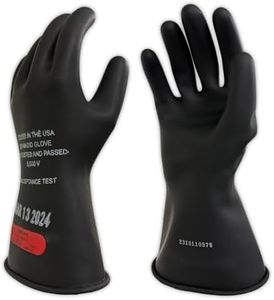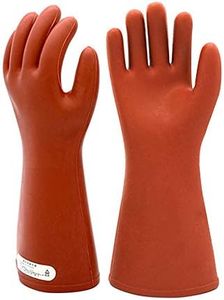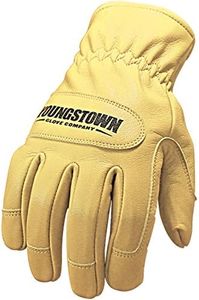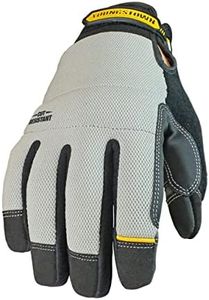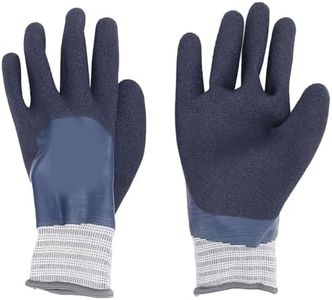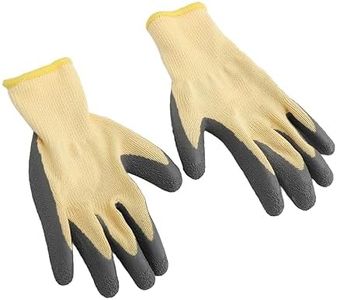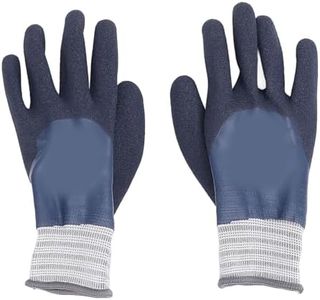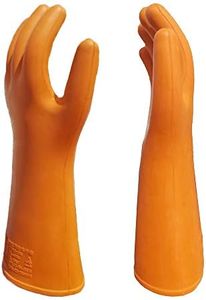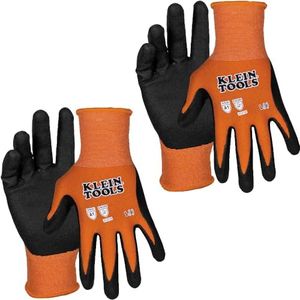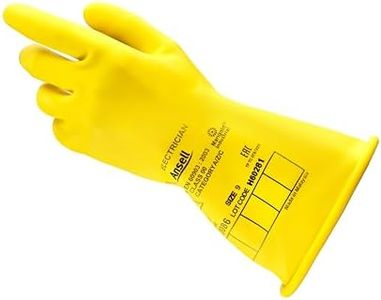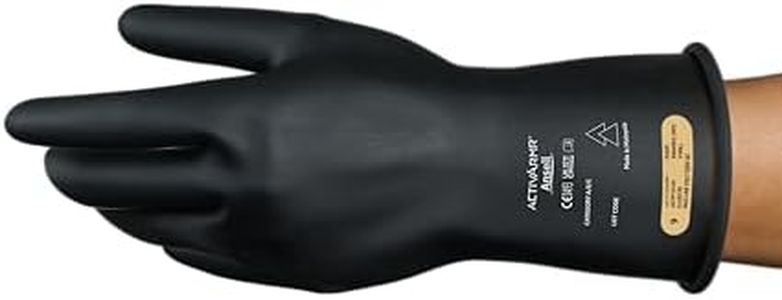We Use CookiesWe use cookies to enhance the security, performance,
functionality and for analytical and promotional activities. By continuing to browse this site you
are agreeing to our privacy policy
10 Best Electricians Gloves
From leading brands and best sellers available on the web.By clicking on a link to a third party's website, log data is shared with that third party.
Buying Guide for the Best Electricians Gloves
Choosing the right electrician’s gloves is essential for safety and comfort while working with electricity. The right pair can protect you from electrical shocks, physical injuries, and also make handling tools and small parts easier. When buying electrician’s gloves, you need to consider the type of work you’ll be doing, the level of protection needed, and how comfortable the gloves are during extended use. Always remember: the gloves are an important piece of personal protective equipment and not all gloves are suitable for electrical work.Electrical Insulation RatingThis rating tells you the maximum voltage the gloves can safely handle and is one of the most important factors for any electrician. Gloves are categorized by classes (such as 00 up to 4), with each class suitable for specific voltage ranges—lower classes protect against lower voltages and higher classes for higher voltages. Before picking, assess the highest voltage you might encounter on the job and choose a glove class that exceeds this level. Never use gloves below the recommended voltage rating for your tasks.
MaterialElectrician’s gloves can be made from various materials, but rubber is commonly used for its insulating properties. You might also find gloves with leather outers for additional protection against cuts and abrasion. Rubber gloves should be used when direct electrical insulation is required, while leather outers are good for mechanical protection. Decide based on whether you need only electrical protection, only mechanical protection, or both.
Glove Size and FitGetting the right size is crucial—too tight and your hands tire quickly, too loose and you lose dexterity. Electrician’s gloves generally come in numbered sizes. Try on different sizes if possible to ensure they fit snugly but comfortably, and allow you to handle tools easily. For tasks requiring fine precision, look for a closer fit.
Dexterity and ThicknessThicker gloves offer more protection but may reduce finger movement and sensitivity, making delicate tasks harder. Thinner gloves are more flexible and allow you to work with small components but are suited for lower voltages. Consider how much dexterity you need for your work and balance that with the required level of protection.
Durability and MaintenanceSome gloves are designed for frequent, heavy use and resist wear and tear, while others might be more prone to degradation, especially if exposed to sunlight or chemicals. Check if the gloves require regular testing or special storage. Choose gloves that match how often you’ll use them and how rough the job environment is.
Standards and CertificationLook for gloves that meet recognized safety standards for electrical work, such as those set by international or national safety organizations. These certifications ensure that gloves have been tested for electrical protection. Always opt for gloves that carry the necessary markings or documents proving compliance.

